C. S. Lewis was an Anglo Catholic and because of this people from both high church and low church traditions have felt comfortable with him. The term Anglo-Catholicism refers to a certain branch of Anglicanism which emphasize its Roman Catholic heritage while retaining the doctrinal distinctives of the Reformation. Anglo Catholics stop short of recognizing the Pope in Rome as the Vicar of Christ and head of their church.
C. S. Lewis in writing Mere Christianity sought input from a Anglican, Methodist, Presbyterian and Roman Catholic. Each argued for an emphasis for one their distinctives but agreed on the core of belief in the book.
Lewis claimed: “I am a very ordinary layman of the Church of England, not especially ‘high,’ nor especially ‘low,’ nor especially anything else. But in this book I am not trying to convert anyone to my own position. Ever since I became a Christian I have thought that the best, perhaps the only, service I could do for my unbelieving neighbours was to explain and defend the belief that has been common to nearly all Christians at all times” (Mere Christianity).
The writings of C. S. Lewis have continued to appeal to Roman Catholic, Eastern Orthodox and many Protestant denominations. Yet between high and low church traditions liturgy can still be a source of controversy.
On the one side of the debate are those sincere people who were raised in a highly ritualistic church where the gospel was not made clear to them. They would follow the weekly rituals and observe religious rites which had little meaning. Then outside this ritualistic world they heard about forgiveness of sin available through Jesus Christ and the assurance of a personal relationships with Him (John 1:12; Ephesians 2:8-9). Understandably, many of these believers feel a relief now to be in a church which exalts the Word of God through Bible preaching and has very little ceremony in the service. One of their great joys is gathering with other believers to discover the life changing content of the living Word.
Yet on the other side of the controversy is the growing appeal of Christian liturgy. Over the last several decades a steady stream of evangelicals who were raised in Bible preaching churches have expressed a longing for the spiritual grounding they feel in biblically based liturgy.
Robert Webber grew up on the mission field in a loving family who held strong evangelical convictions. Yet as an adult Webber went through a spiritual journey which led him to the Anglican church. He wrote a landmark text on it Evangelicals on the Canterbury Trail: Why Evangelicals Are Attracted to the Liturgical Church. Here is a brief over view:
“Why do so many evangelicals flock to liturgical traditions today? Robert Webber first explored the question in this thoughtful and engaging classic in 1989; now evangelical scholar and pastor Lester Ruth updates the conversation. Much remains of Webber s beloved original text, including his discussion of Anglicanism s six great gifts: mystery and awe, Christ-centered worship, sacramental reality, historical identity, participation in catholic traditions and holistic spirituality. Ruth adds fresh stories from evangelicals who have followed Webber s footsteps on the Canterbury trail, along with new essays that highlight the diversity of Anglican expressions today.”
Still another factor in style of worship is the “Seeker Friendly” Church which tailor makes the service for the unbeliever. A rock band, engaging drama and simplified topical message are often part of the format. This phenomenon did not exist in its current form in Lewis’ day. Yet he wrote a concern about innovation to lure in attendees based upon an agenda of entertainment instead of creating a sense of worship and awe.
“It looks as if they [church leaders] believed people can be lured to go to church by incessant brightenings, lightenings, lengthenings, abridgements, simplification and complications of the service… Novelty, simply as such, can have only an entertainment value” (Letters to Malcolm).
Instead, Lewis saw the purpose of the service as one of spiritual enactment through preachment and liturgy: “…[lay people] don’t go to church to be entertained. They go to use the service, or if you prefer to enact it. Every service is structure of acts and words through which we receive a sacrament, or repent or supplicate or adore” (Letters to Malcolm).
Those who hold to high church tradition believe that liturgy is a visual picture with a spiritual significance. They believe that liturgy uses signs and symbols found in the Old Testament which is more fully revealed in the Person and Work of Jesus Christ.
So how do you feel about Christian liturgy and its place in meaningful worship?

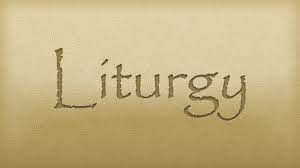
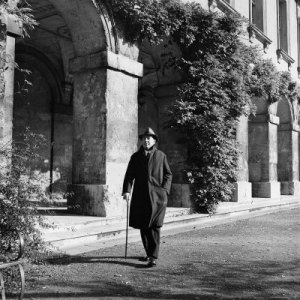
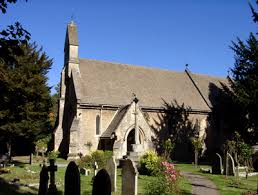

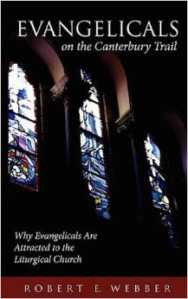
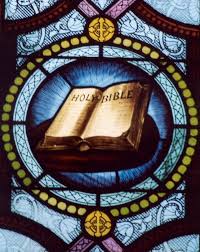
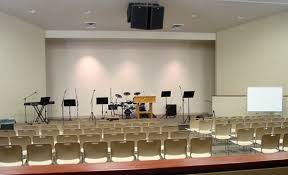
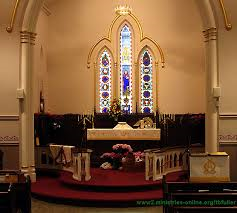
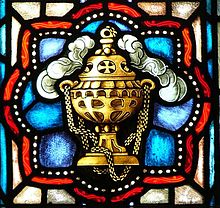
I love it, because it actually keeps the gospel front and center so that we are both confronted with our need and consoled with God’s promises in and through Jesus. By the way, as I think I’ve shared before here, I too have become an Anglican from a low church tradition.
I prefer a service which actually leaves room for some spontaneity along with the liturgy. I have found that hands down much more scripture is read in liturgical churches. You have an Old and New Testament reading, a reading from the psalms, climaxed with a reading from the gospel of one of the evangelists: Matthew, Mark, Luke and John.
Along with the Nicene Creed recited, prayers (including the Lord’s Prayer), confession of sin and absolution (forgiveness pronounced) to all who are repentant, near the end we together share in the Eucharist, the Lord’s Table.
Really I see all churches together as one church and we simply differ in our way of worship. Though the heart as in the spirit and truth in Jesus is the same.
Great post. Thanks.
LikeLike
Ted: Thanks for the insights. It is good to hear that there is actually more Scripture read in an Anglican service than those denominations of low church tradition.
LikeLike
The Divine Liturgy becomes more meaningful to me every week. A COMMENTARY ON THE DIVINE LITURGY by Nicholas Cabasilas is the book our teacher is using in our Sunday school class at St. Nicholas Antiochian Church. One of the new thoughts he shared this morning was regarding the holy mysteries. “For the holy mysteries are the Body and Blood of Christ, which are to the Church true food and drink. When she partakes of them, she does not transform them into the human body, as we do with ordinary food, but she is changed into them, for the higher and divine element overcomes the earthly one. When iron is placed in the fire, it becomes fire; it does not, however, give the fire the properties of iron; and just as when we see white-hot iron it seems to be fire and not metal, since all the characteristics of the iron have been destroyed by the action of the fire, so, if one could see the Church of Christ, insofar as she is united to him and shares in his sacred Body, one would see nothing other than the Body of the Lord.
Because of this, St. Paul wrote:”Ye are the body of Christ, and members in particular. (I Cor. 12:27).” pp91-92.
To worship the Triune God and to live in Christ, fully dependent on that Head and clothed with that Body is what the Liturgy calls us to. I fall short of this calling every day but He continues calling me to Himself, forgiving and covering me with His love.
LikeLike
This illustration was shared with us when we were in seminary to represent consubstantiation which is held by the Lutheran tradition. Interesting to hear of its use in the Eastern Orthodox context.
LikeLike
Any gift or system, in the hands of man, can be misused.
Liturgy, as a system or method to get the living and active Word of God into the minds and hearts of attendees of a church service, is a wonderful thing.
As a cloak for a system of self-actualization, self-exaltation of members of church hierarchy, it can be off-putting.
Matt 23:1-12 is a good read on the topic.
Pharisee behavior, where life and church pursuits had become disjointed from the faith relationship and theology on which it was based, was scorned by the Savior.
Liturgy as a means of carrying out Romans 12:2, to be transformed by the renewing of our minds about the will of God, is wonderful.
While liturgy as a window dressing for a system of self elevation of church leaders is something else entirely, and to be guarded against.
Matt 23:12 summed up Jesus’ opening thoughts on this in His unique style.
To those who love liturgy as a form and means to draw us closer to the Almighty in our walk with Him and resulting acts of obedience to Him in daily life, affirmation.
But it generally follows that, if our life of obedience to Him stalls, and we stop applying truths of Scriptures, the unapplied knowledge becomes a “stumbling block to further truth” as author Coleman mentioned.
Because the structure of high church and its worship has slipped, in times past, into some patterns, some are nauseated by the liturgy that was part of high church worship service structure.
Like “throwing out the baby with the bathwater” may be the over-reaction, of not wanting to have much of any structure in a worship service.
But in church, and in liturgy as a catalyst method for worship, Matt. 23 is a good reminder to not veer.
LikeLike
Liturgy provides a defined structure to enact worship. it builds a box so to speak. the difficulty i have dealing in a non churched environment is that it becomes a boxed compartment for a specific day and time on the calendar. The lay person will say I cannot worship outside that box, I cannot know God outside that box giving God little relevance in a world that rejects the box. Many Christians will use it as a crutch. “Go to the box and become a christian like me”, “The one who leads the liturgy is the only one who can be an evangelist.”.
People are to willing to build systems in their image to replace the relationship created in the image of God.
Liturgy, I believe is neutral, a methodology to express my worship and corporate interaction with other believers.
LikeLike